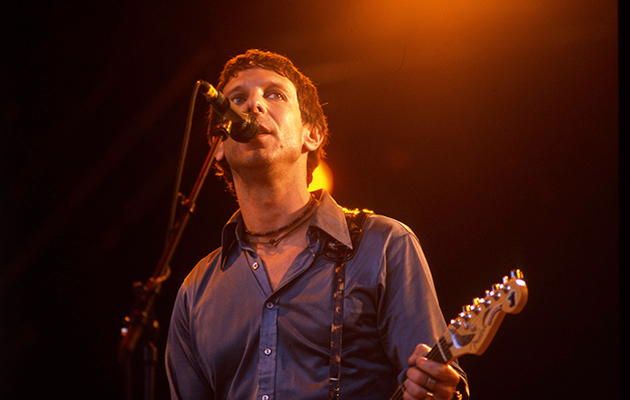Mercury Rev recall the creation of one of their finest songs, a highlight of 1998’s Deserter’s Songs. Originally published in Uncut’s October 2015 issue.
________________________________
“‘Opus 40’ could be the song of ours that’s most connected to the Catskill Mountains,” says frontman Jonathan Donahue today. “It just came out of me like that.” Not only a stately highlight of Deserter’s Songs, “Opus 40” is aptly infused with the unique spirit of New York state’s most famous mountain range, an area still deeply connected with such luminaries as Bob Dylan and The Band.
“I think the song is a bit of an homage to The Band,” adds guitarist Sean ‘Grasshopper’ Mackowiak, “in that it’s got those descending chords which The Band did a lot, especially Rick Danko’s bass parts with all those hefty suspensions. So we wanted to see if Levon Helm would play the drums on it.”
With help from The Band’s drummer, some cross-pollination with The Flaming Lips and a spot of whistling that would soon attract the attentions of a global fast-food chain, “Opus 40” was sculpted into one of Mercury Rev’s best-loved songs.
As a centrepiece of 1998’s dark masterpiece Deserter’s Songs, it also helped bring the group back from the brink, both musically and within their tattered and destructive personal lives.
“We thought, ‘Well, if no-one is listening and this is gonna be our last album, then we’re really gonna go for it’,” says Donahue.
__________________
JONATHAN DONAHUE: See You On The Other Side [the band’s third album, released in 1995] was obliterated by Britpop, it didn’t stand a chance. After the tour, we had no lawyer, no label, no money, no manager, nothing. And most of all, we had nobody waiting for a new record. Grasshopper and I were both going through some heavy times personally. For a few years there, I dove head-long into some very self-destructive times, I split the seam both mentally and emotionally. I went through a really tough time which, somehow looking back, I think actually paralleled The Band, certainly with Levon and Rick [Danko] and Garth [Hudson], during those times.
ADAM SNYDER: I don’t know if Deserter’s Songs was a last role of the dice, but it was just an attempt at keeping things going. There wasn’t really the perception that it was gonna be a successful album. In a way it was Jonathan and I starting the process, because a lot of the others weren’t around.
DONAHUE: We were broken up on the inside. We never said Mercury Rev is breaking up, but without a ready audience encouraging you, it was easy to become very despondent, very disheartened. Drugs? Alcohol? You could probably shoot a very wide arrow and hit just about any of the marks for destruction [that were going on]. It was a total breakdown of confidence, because See You On The Other Side was so much us, musically, that where could you turn? We thought, well, we’re gonna go in a way where there’s no rock drums, there’s no chiming guitar solos or leads, and we’re just gonna go really deep on the inside.
SEAN ‘GRASSHOPPER’ MACKOWIAK: Right before Deserter’s Songs, we moved back to the Catskills, and that was reflected in the music – you’re in this tranquil setting instead of being deep down in New York, the big town, every day.



